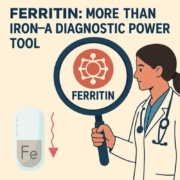Chronic Pain after COVID-19
Since the initial outbreak of COVID-19 in December 2019, there have been more than 500 million cases of infection worldwide.
It has become apparent that infection with COVID-19 may be more complex than first thought. Recovery from the virus does not always mean an end to all symptoms. One unfortunate consequence is that patients may continue to experience long-term effects of the virus even after their original symptoms have resolved. Informally known as long-COVID or post-COVID syndrome, a large number of individuals who get infected with COVID-19 will go on to experience a wide range of symptoms such as tiredness, difficulty thinking, shortness of breath or chronic pain for weeks, months or years after they were first infected.
Chronic pain is described as pain that lasts for longer than 3 months and includes physical symptoms, such as muscle and joint pain, fatigue, as well as emotional symptoms, such as depression or anxiety. The pain may be “on” and “off” or continuous. It may also impact your ability to carry out basic functions or enjoy normal day-to-day activities. For many patients, finding ways to deal with chronic pain can be a challenge. Chronic pain following infection with COVID-19 is no different but there are some unique factors about this type of pain.
What makes chronic pain in COVID-19 special?
- Although initially assumed to be a respiratory disease, it is now clear that COVID-19 does not just affect the lungs. It affects a variety of body systems including the heart, kidneys, blood circulation and the brain. This means that for some individuals, recovery from COVID-19 will look very different. It may involve seeking specialist help in these areas for long term follow-up.
- Many patients infected by COVID-19 required critical hospital interventions like mechanical ventilation or a prolonged stay in ICU. For patients who experienced this, a condition known as post-intensive care syndrome (PICS) may be a factor in their recovery. Post-intensive care syndrome is a condition that affects the whole body including your cognitive, physical, and psychological well-being. These symptoms can have profound effects on your quality of life and chronic pain is often part of this.
- The estimates of chronic pain following a prolonged stay in ICU vary from 14% to 77%. Studies suggest that it is likely that those surviving critical illness with COVID-19 will be at particular risk of developing chronic pain.
- COVID-19 survivors that experienced prolonged periods of immobilization, sedation, and ventilation as part of their initial hospital treatment are at high risk of developing muscle weakness and chronic pain.
- Lastly, research shows that COVID-19 infection is associated with an overproduction of cytokines, also referred to as a cytokine storm. This immune response results in an increase in inflammation which, when sustained, can lead to a number of pain symptoms such as muscle pain, joint pain, abdominal pain, headaches and chest pain. This is true even for those not admitted to critical care. Patients that experienced a relatively mild version of COVID-19 may still have these same problems.
Diagnosis
At The Kaplan Center, our goal is to treat long-COVID and its associated chronic pain by taking a holistic, whole-body approach. Our physicians will take time to explore the onset of your condition, the specific nature of your symptoms and the overall status of your health. We want to know when you last felt really healthy, what your experience with COVID-19 has been like and understand the difficulties that long-term COVID has had on your life.
In diagnosing a patient, we will also consider how the immune system may have previously been damaged in the past. This may involve exploring possible exposure to toxins or heavy metals. Additionally, we may ask questions about how well your gastrointestinal system is functioning. All of this information will give us a better understanding of your health before, during and after COVID-19.
Furthermore, we want to know about your relationship to other symptoms like anxiety, sleep disorders, fatigue and “brain fog”. It is possible that such symptoms are likely to be exacerbated or possibly caused by chronic pain.
Management
Our doctors have been treating chronic pain for decades and our specialty is treating those with long-term conditions. Management of chronic pain following COVID-19 may involve one or more of the following:
- Nutrition – Dietary changes to improve your gut function
- Replacement of minerals and vitamins
- Psychotherapy, EMDR & Guided Meditation
- Sleep Evaluation & Management
- Acupuncture
- Prescription drugs
- Supplements
Our team is equipped to listen and work with our patients to come up with management plans that are tailored to their needs.
Additional References:
Kemp HI, Corner E, Colvin LA. Chronic pain after COVID-19: implications for rehabilitation. Br J Anaesth. 2020;125(4):436-440. doi:10.1016/j.bja.2020.05.021
– – – – – – – – – – –
Long-COVID Recovery Services
If you have been experiencing the persistent aftereffects of COVID-19 for longer than 6 weeks, we can help you regain your strength, energy, and vitality.
We are here for you, and we want to help.
Our goal is to return you to optimal health as soon as possible. To schedule an appointment please call: 703-532-4892 x2










Leave a Reply
Want to join the discussion?Feel free to contribute!